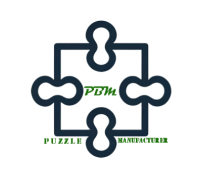Jigsaw puzzles have therapeutic benefits that can improve mental health and well-being. Here are some ways that jigsaw puzzles can be therapeutic:
- Relieves stress: Puzzling can be a relaxing and meditative activity that can help reduce stress levels. It can provide a sense of calm and control, which can help alleviate anxiety and tension.
- Promotes mindfulness: Puzzling requires focus and concentration, which can promote mindfulness and help you stay present in the moment. This can be a helpful tool for managing stress and anxiety.
- Improves mood: Completing a puzzle can provide a sense of accomplishment and boost mood. It can be a satisfying and enjoyable way to spend time.
- Enhances cognitive function: Puzzling can enhance cognitive function by improving memory, problem-solving skills, attention to detail, and visual-spatial reasoning. This can help improve overall brain function and provide mental stimulation.
- Promotes socialization: Puzzling can be a fun activity to do with others, which can promote socialization and improve interpersonal relationships.
- Fosters creativity: Puzzling can foster creativity by encouraging imagination and visualization. It can provide a way to explore different colors, shapes, and patterns in a fun and engaging way.
Overall, jigsaw puzzles have therapeutic benefits that can improve mental health and well-being. They can relieve stress, promote mindfulness, improve mood, enhance cognitive function, promote socialization, and foster creativity. Whether you’re puzzling alone or with others, it can be a fun and rewarding activity that provides a range of mental and emotional benefits.

